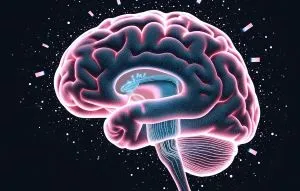
Artificial Intelligence (AI) has emerged as one of the most transformative technologies of the 21st century, and at the forefront of this revolution is Google DeepMind. Founded in 2010 and acquired by Google in 2014, DeepMind has become synonymous with cutting-edge AI research and innovation. The company’s mission is to "solve intelligence and then use that to solve everything else." This ambitious goal has led to groundbreaking advancements in machine learning, reinforcement learning, and AI applications across various domains, from healthcare to gaming and beyond. This article delves into the history, achievements, and future potential of Google DeepMind, exploring how it is shaping the future of AI.
The Origins of DeepMind:
DeepMind was founded in London in 2010 by Demis Hassabis, Shane Legg, and Mustafa Suleyman. Hassabis, a former child chess prodigy and video game designer, brought a unique perspective to the company, combining expertise in neuroscience, computer science, and gaming. Legg, a machine learning researcher, and Suleyman, an entrepreneur with a focus on AI ethics, complemented Hassabis’s vision. Together, they aimed to create a company that would push the boundaries of AI by developing systems capable of learning and reasoning like humans.
From its inception, DeepMind focused on reinforcement learning—a branch of machine learning where agents learn to make decisions by interacting with their environment and receiving feedback in the form of rewards. This approach was inspired by how humans and animals learn through trial and error. DeepMind’s early work laid the foundation for its later successes, including the development of AI systems that could outperform humans in complex tasks.
The Acquisition by Google:
In 2014, Google acquired DeepMind for a reported $500 million, marking one of the most significant acquisitions in the tech industry. The deal was driven by Google’s recognition of DeepMind’s potential to revolutionize AI and its applications. Under Google’s umbrella, DeepMind gained access to vast computational resources and data, enabling it to scale its research and accelerate its progress.
The acquisition also raised important questions about the ethical implications of AI. DeepMind’s founders were acutely aware of the potential risks associated with advanced AI systems, and they negotiated a unique agreement with Google to establish an AI ethics board. Although the details of this board remain largely undisclosed, it reflects DeepMind’s commitment to responsible AI development.
Breakthroughs in AI Research:
DeepMind’s research has produced several landmark achievements that have captured the world’s attention. These breakthroughs demonstrate the company’s ability to tackle complex problems and push the boundaries of what AI can achieve.
1. AlphaGo: Mastering the Game of Go
One of DeepMind’s most famous achievements is AlphaGo, an AI system designed to play the ancient board game Go. Go is considered one of the most complex games in existence, with more possible board configurations than there are atoms in the universe. In 2016, AlphaGo made history by defeating Lee Sedol, one of the world’s top Go players, in a five-game match. This victory was a watershed moment for AI, as it demonstrated that machines could excel in domains requiring intuition, creativity, and strategic thinking.
AlphaGo’s success was followed by the development of AlphaZero, a more advanced system capable of mastering not only Go but also chess and shogi. Unlike traditional AI systems that rely on human expertise, AlphaZero learns entirely through self-play, discovering strategies that surpass human knowledge.
2. AlphaFold: Revolutionizing Biology
In 2020, DeepMind achieved another major milestone with AlphaFold, an AI system designed to predict protein structures. Proteins are essential to life, and understanding their 3D shapes is crucial for advancing medicine and biology. However, determining protein structures experimentally is a time-consuming and expensive process.
AlphaFold’s ability to accurately predict protein structures has been hailed as a game-changer for the field of biology. In the 2020 Critical Assessment of Structure Prediction (CASP) competition, AlphaFold outperformed all other methods, achieving accuracy comparable to experimental techniques. This breakthrough has the potential to accelerate drug discovery, improve our understanding of diseases, and unlock new possibilities in synthetic biology.
3. Reinforcement Learning and General AI:
DeepMind’s work in reinforcement learning has also led to significant advancements in the development of general AI—systems that can perform a wide range of tasks. For example, DeepMind’s agents have learned to play a variety of Atari games at superhuman levels using the same underlying algorithms. This versatility is a step toward creating AI systems that can adapt to new challenges and environments, much like humans.
Applications Beyond Gaming. While DeepMind’s early successes were in gaming, the company has expanded its focus to real-world applications, particularly in healthcare and energy efficiency.
Healthcare:
DeepMind has partnered with hospitals and healthcare organizations to develop AI tools that can improve patient outcomes. For instance, the company has created systems that can analyze medical images to detect conditions such as eye diseases and breast cancer. These tools have the potential to assist doctors in making faster and more accurate diagnoses, ultimately saving lives.
In 2021, DeepMind launched DeepMind Health, a division dedicated to applying AI to healthcare challenges. One of its notable projects is Streams, a mobile app that helps clinicians monitor patients with acute kidney injury. By providing real-time alerts and recommendations, Streams has been shown to reduce the time to treatment and improve patient outcomes.
Energy Efficiency:
DeepMind has also applied its AI expertise to optimize energy consumption in data centers. By using machine learning to predict and manage cooling systems, DeepMind has helped Google reduce its energy usage by up to 30%. This not only lowers costs but also reduces the environmental impact of data centers, contributing to sustainability efforts.
Ethical Considerations and Challenges:
As DeepMind continues to push the boundaries of AI, it faces important ethical and societal challenges. The potential for AI to transform industries and improve lives is immense, but it also raises concerns about privacy, bias, and the impact on jobs.
DeepMind has been proactive in addressing these issues, establishing an ethics and society team to explore the implications of AI. The company has also advocated for transparency and collaboration in AI research, publishing its findings and sharing its tools with the broader scientific community.
However, challenges remain. The use of AI in healthcare, for example, requires careful consideration of patient privacy and data security. Similarly, the deployment of AI in areas such as autonomous weapons and surveillance raises ethical questions that demand global cooperation and regulation.
The Future of DeepMind:
Looking ahead, DeepMind’s vision extends beyond solving specific problems to creating general AI—systems that can learn and reason across a wide range of tasks. This ambitious goal, often referred to as artificial general intelligence (AGI), remains a long-term challenge, but DeepMind’s progress so far suggests that it is well-positioned to make significant contributions.
In the near term, DeepMind is likely to continue its work in healthcare, energy, and other domains, leveraging its expertise to address pressing global challenges. The company’s collaboration with Alphabet, Google’s parent company, provides a strong foundation for scaling its innovations and bringing them to market.
Google DeepMind has established itself as a leader in AI research and innovation, with a track record of groundbreaking achievements that have redefined what is possible with machine learning. From mastering complex games to revolutionizing biology and healthcare, DeepMind’s work has far-reaching implications for science, industry, and society.
As the company continues to pursue its mission of solving intelligence, it must navigate the ethical and societal challenges that come with advancing AI. By prioritizing transparency, collaboration, and responsible development, DeepMind has the potential to shape a future where AI benefits all of humanity. Whether through its contributions to healthcare, energy efficiency, or the pursuit of general AI, DeepMind is undoubtedly at the forefront of the AI revolution, paving the way for a smarter and more connected world.







